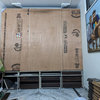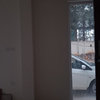Basement smells
2manyhorses
9 years ago
Featured Answer
Sort by:Oldest
Comments (9)
Dytecture
9 years agoJudyG Designs
9 years agolast modified: 9 years agobubbasgma
9 years ago3A Architects
9 years agobgfuqua
9 years agoBrandi Nash Hicks
9 years agoJulia & Elizabeth
9 years agoCancork Floor Inc.
9 years agolast modified: 9 years ago





Design Freedom, inc.